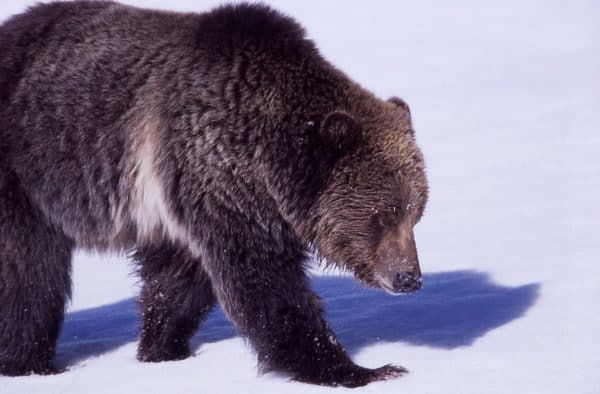
 Are grizzly bears being lured to their deaths?
Are grizzly bears being lured to their deaths?
A study of grizzly bear populations in southeastern BC has found a 40 per cent drop in numbers over the past eight years, with human-grizzly interactions taking most of the blame for the decline.
The study focuses on the Elk Valley, an area in BC’s East Kootenay region which borders the Elk and Kootenay rivers and includes the towns of Jaffray, Fernie, Elkford and Sparwood. Home to about 12,000 people, the area is also known for its grizzly population – in the 1980s, the Elk Valley recorded the highest interior grizzly density in North America at 77 bears per 1000 square kms.
But the Elk Valley also receives a marked influx of tourists each summer, and the land is crisscrossed with major highways as well as an active Canadian Pacific railway. Plus, says Clayton Lamb, PhD candidate in Biological Sciences at the University of Alberta and lead author of the study, each year the area boasts a healthy crop of berries, making it prime territory for grizzlies. “The habitat is really attractive, and it’s a good spot for bears to be,” says Lamb.
“They’re using evolutionary cues to search for areas with abundant food and less competition for space—the Elk Valley satisfies that need.”
Yet, the combination has proven deadly for grizzlies, who have lost 40 per cent of their population over the past eight years. Researchers tracked grizzly numbers in the region between 2006 and 2014 and found that the grizzly population was declining at a rate of eight per cent a year, with human-caused deaths playing a major role. The study concluded that a full 68 per cent of human-caused grizzly mortalities in that time period were not due to hunting but to collisions with vehicles and trains as well as control kills as a result of human-bear conflicts.
The sad fact of the matter, according to the study’s authors, is that the region represents an “ecological trap” for grizzly bears. The nutritional plenty supplied by the berries draws the bears into the region, but the ensuing interaction with the human population translates into a loss in numbers -which then only makes the area more attractive, competition-wise, for other grizzlies to make their way into the region. “Ecological traps are most lethal when they arise rapidly (in evolutionary time),” say the study’s authors. “As a result, many ecological traps are associated with anthropogenic disturbance [human-induced] rapid ecological change.”
The problem is particularly dangerous for so-called apex predators at the top of the food chain animals like grizzlies, tigers and wolves. “Apex consumers are highly vulnerable to ecological traps because they typically lack natural predators and may not perceive or avoid novel sources of risk such as human predation,” say the study’s authors. “Consequently, conflicts with humans for space have resulted in severe range reductions for apex consumers globally.”
The authors note that solving the problem won’t be easy. Past research has shown that halting the decline in numbers likely won’t come from adaptation on the bears’ part – from the grizzlies simply learning to live with increased human-animal interactions. Rather, it will depend on finding new ways of decreasing the chances for such interactions.
The new study is published in the Journal of Animal Ecology.
Leave a Reply
You must be logged in to post a comment.




 Share
Share Tweet
Tweet Share
Share




Comment